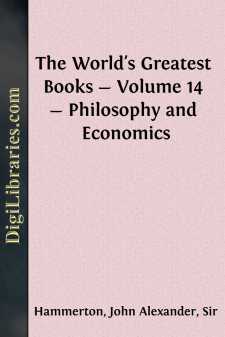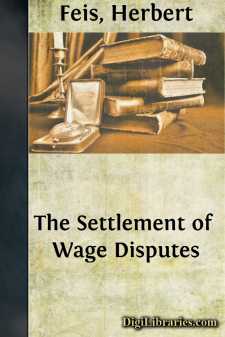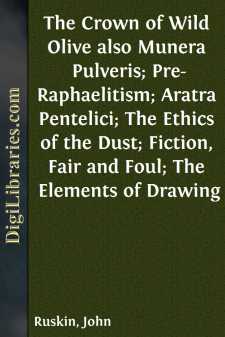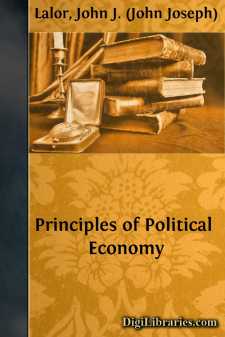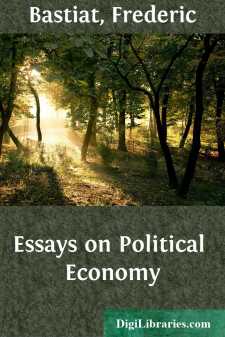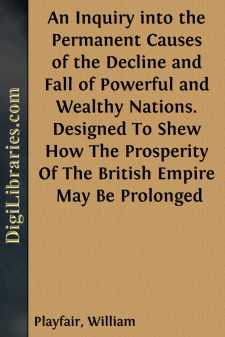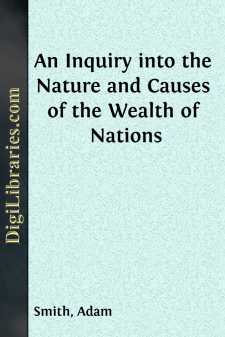Business & Economics
- Advertising & Promotion 2
- Banks & Banking 1
- Business Ethics 7
- Development 1
- Economics
- Education 1
- General 5
- Investments & Securities 1
- Management 2
- Money & Monetary Policy 1
Economics Books
Sort by:
INTRODUCTION We are told every day that great social problems stand before us and demand a solution, and we are assailed by oracles, threats, and warnings in reference to those problems. There is a school of writers who are playing quite a rôle as the heralds of the coming duty and the coming woe. They assume to speak for a large, but vague and undefined, constituency, who set the task, exact a...
more...
HEGEL The Philosophy of History Georg Wilhelm Friedrich Hegel was born on August 27, 1770, at Stuttgart, the capital of Würtemburg, in which state his father occupied a humble position in government service. He was educated at Tübingen for the ministry, and while there was, in private, a diligent student of Kant and Rousseau. In 1805 he was Professor Extraordinarius at the University of Jena, and in...
more...
by:
Herbert Feis
CHAPTER I—INTRODUCTORY Section 1. In any attempt to formulate principles for use in the settlement of wage disputes, past experience furnishes much guidance. What this experience consists of.—Section 2. Such principles as have been used in the settlement of wage disputes have usually resulted from compromise; reason and economic analysis have usually been secondary factors. However, industrial...
more...
by:
John Ruskin
PREFACE. Twenty years ago, there was no lovelier piece of lowland scenery in South England, nor any more pathetic in the world, by its expression of sweet human character and life, than that immediately bordering on the sources of the Wandle, and including the lower moors of Addington, and the villages of Beddington and Carshalton, with all their pools and streams. No clearer or diviner waters ever...
more...
CHAPTER I CHOOSING A PLACE TO LIVE Blessed indeed are they who are free to choose where and how they shall live. Still more blessed are they who give abundant thought to their choice, for they may not wear the sackcloth of discomfort nor scatter the ashes of burned money. Most of us have a theory of what the home should be, but it is stowed away with the wedding gifts of fine linen that are cherished...
more...
It is no foolish desire to make a vain display of citations, that induces us, at the beginning of this essay, intended to point out the results of the application of a new method to the study of Political Economy, to invoke the authority of a poet and moralist, of a jurisconsult and of a philosopher. The writer finds in the words just quoted the loftiest expression of the thought which dictates these...
more...
by:
Frederic Bastiat
Capital and Interest. My object in this treatise is to examine into the real nature of the Interest of Capital, for the purpose of proving that it is lawful, and explaining why it should be perpetual. This may appear singular, and yet, I confess, I am more afraid of being too plain than too obscure. I am afraid I may weary the reader by a series of mere truisms. But it is no easy matter to avoid this...
more...
by:
William Playfair
P R E F A C E. ---o0o--- IF it is of importance to study by what means a nation may acquire wealth and power, it is not less so to discover by what means wealth and power, when once acquired, may be preserved. The latter inquiry is, perhaps, the more important of the two; for many nations have remained, during a long period,...
more...
by:
Adam Smith
INTRODUCTION AND PLAN OF THE WORK. The annual labour of every nation is the fund which originally supplies it with all the necessaries and conveniencies of life which it annually consumes, and which consist always either in the immediate produce of that labour, or in what is purchased with that produce from other nations. According, therefore, as this produce, or what is purchased with it, bears a...
more...
The authors of this volume, while they sympathize with every honest effort to relieve the disabilities and sufferings of their sex, are confident that the chief cause of these evils is the fact that the honor and duties of the family state are not duly appreciated, that women are not trained for these duties as men are trained for their trades and professions, and that, as the consequence, family labor...
more...



